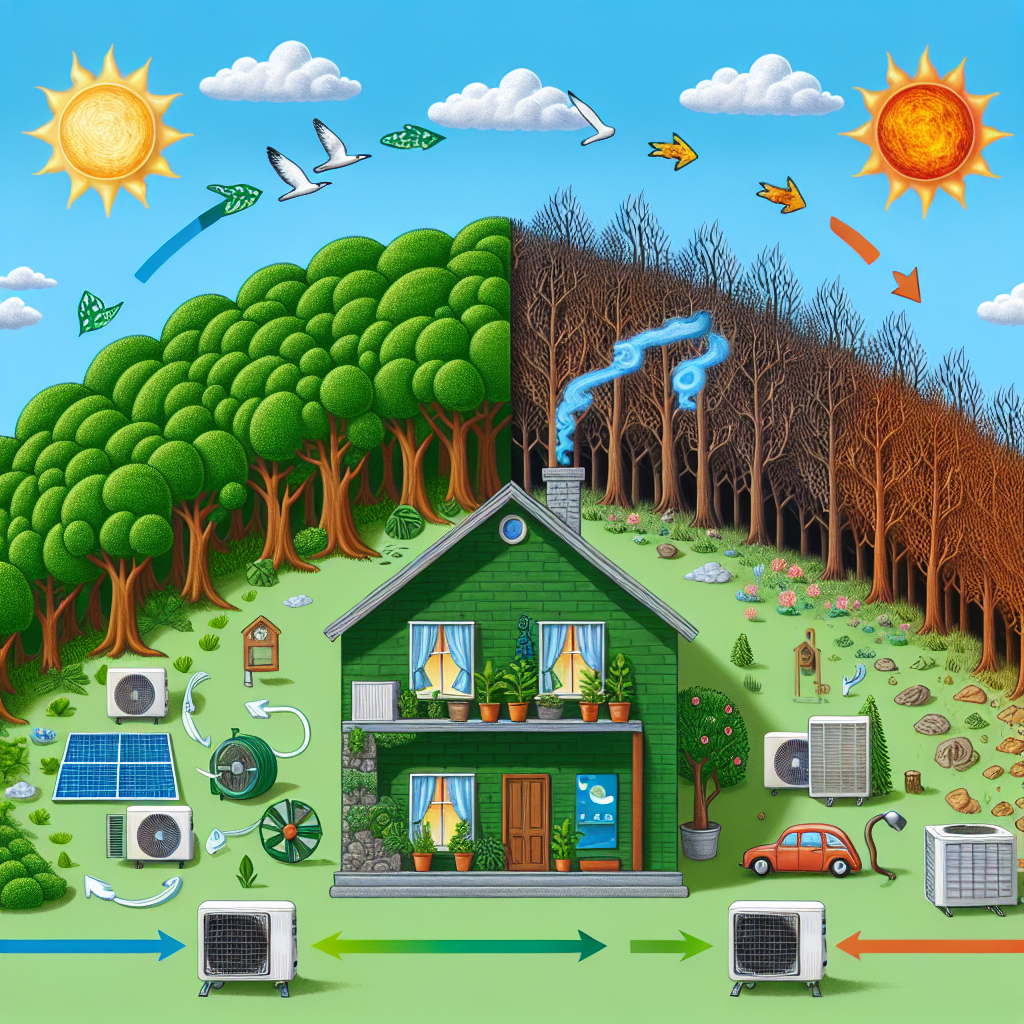Your cart is currently empty!
The Environmental Impact of Air Conditioning and How to Make Greener Choices

Air conditioning has become a staple in many homes and buildings around the world, providing a much-needed respite from the sweltering heat during the summer months. However, the environmental impact of air conditioning is significant and cannot be ignored. From the energy consumption required to run these systems to the refrigerants used in the cooling process, air conditioning contributes to greenhouse gas emissions and exacerbates climate change.
One of the main environmental concerns associated with air conditioning is its high energy consumption. According to the U.S. Department of Energy, air conditioning accounts for about 6% of all the electricity produced in the United States. This high energy demand puts a strain on power grids and increases the production of greenhouse gases, primarily carbon dioxide, which contribute to global warming. In addition, the refrigerants used in air conditioning systems, such as hydrofluorocarbons (HFCs), are potent greenhouse gases that have a high global warming potential.
To minimize the environmental impact of air conditioning, there are several steps that individuals and businesses can take to make greener choices. One of the most effective ways to reduce energy consumption is to invest in energy-efficient air conditioning systems. Look for units that have a high energy efficiency rating, such as ENERGY STAR certified models, which can help reduce energy usage and lower utility bills.
Another way to make greener choices when it comes to air conditioning is to properly maintain and service your system. Regular maintenance, such as cleaning or replacing air filters, can help improve the efficiency of your air conditioning unit and prolong its lifespan. Additionally, ensuring that your home is properly insulated and sealed can help reduce the need for excessive cooling and improve energy efficiency.
When it comes to refrigerants, there are more environmentally friendly options available that have lower global warming potential. Look for air conditioning systems that use alternative refrigerants, such as hydrofluoroolefins (HFOs), which have a lower impact on the environment. Additionally, consider recycling or properly disposing of old refrigerants to prevent them from leaking into the atmosphere and contributing to climate change.
In conclusion, the environmental impact of air conditioning is significant, but there are ways to make greener choices and reduce its negative effects on the planet. By investing in energy-efficient systems, properly maintaining and servicing your air conditioning unit, and choosing environmentally friendly refrigerants, you can help minimize the environmental impact of cooling your home or building. Making these small changes can make a big difference in the fight against climate change and create a more sustainable future for generations to come.

Leave a Reply